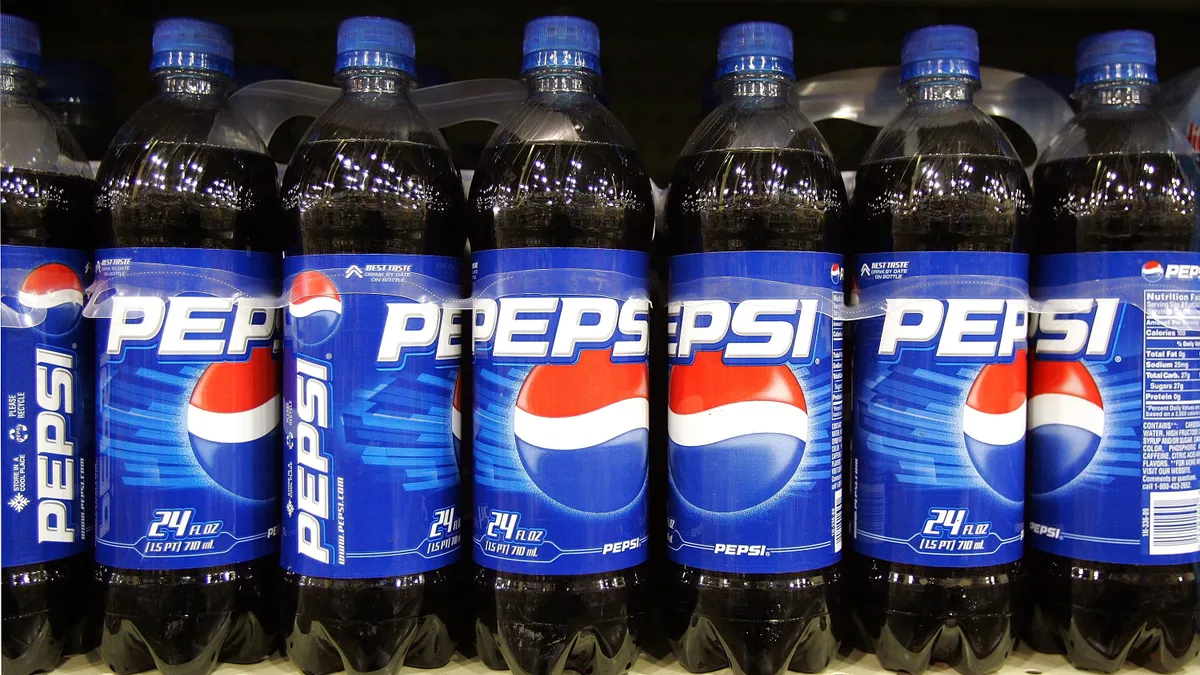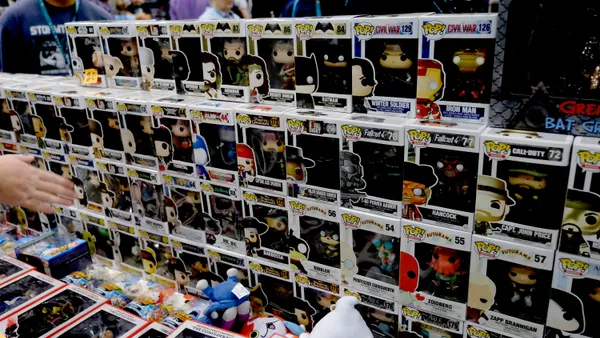Dive Brief:
- PepsiCo said it will reduce the use of virgin plastic per serving by 50% across its global food and beverage portfolio by 2030, and incorporate half recycled content in its plastic packaging as part of a new initiative called Pep+.
- The beverage and snack giant also said it would focus on scaling new business models that require little or no single-use packaging, noting efforts to expand its SodaStream sparkling-water business.
- PepsiCo's standard of measurement will be the amount of plastic used to serve 12 ounces of beverages and 1 ounce of food, Reuters reported, allowing the company to more easily measure its use of the packaging material.
Dive Insight:
As more companies have pledged to curtail their waste, few materials have been targeted as fiercely as plastic. PepsiCo and archrival Coca-Cola have been hit especially hard by critics who have said the makers of sodas, bottled waters, teas and sports drinks are not doing enough to reduce their packaging impact.
Coca-Cola estimates it produces 120 billion bottles of single-use plastic each year, while a report from the Ellen MacArthur Foundation said PepsiCo consumes 2.3 million metric tons of plastic annually.
Earlier this year, Coca-Cola introduced new bottles made from 100% recycled plastic material. In 2018, the maker of Diet Coke and Sprite pledged to collect and recycle the equivalent of a bottle or can for every one it sells by 2030, make 100% of its packaging recyclable by 2025 and use 50% recycled material in its bottles and cans by 2030.
Similar to other CPG companies, PepsiCo is no stranger to making promises to reduce its environmental footprint, but its newest announcement appears to embrace a more ambitious agenda. Just two years ago, PepsiCo vowed to reduce 35% of its virgin plastic content across its beverage portfolio by 2025. Now it's targeting a 50% cut in beverage and food by 2030.
"Pep+ is the future of our company," Ramon Laguarta, PepsiCo’s Chairman and CEO, said in a statement. "It reflects a new business reality, where consumers are becoming more interested in the future of the planet and society."
During the pandemic, sustainable packaging has emerged as a top priority as consumers show more interest in their environmental footprint and that of the overall food system. This has likely intensified pressure on CPGs to go beyond their earlier commitments.
Nearly two-thirds of consumers consider it important that the products they buy are in recyclable packaging, according to Trivium Packaging’s 2021 Global Buying Green Report. The report also found more than half (54%) take sustainable packaging into consideration when selecting a product.
In addition to its commitment to reduce its use of virgin plastic, PepsiCo is tapping into the sustainability halo offered by its SodaStream platform.
The sparkling water maker, purchased by PepsiCo for $3.2 billion in 2018, allows consumers to use a machine to make a beverage they can load into their own containers, curtailing the need for new plastic bottles. If PepsiCo can expand the system into new markets and entice consumers with additional flavors, it could avoid the need for more than 200 billion plastic bottles by 2030, the company said.
The beverage and snack company also noted it has been investing in food packaging technology and is now introducing a fully compostable bag made with plant-based materials, starting with its Off The Eaten Path brand. PepsiCo said it is willing to work with other companies to license the same technology at no cost to build momentum for a circular food packaging system.
Greenpeace, which has been critical of CPGs' efforts to address sustainability, had mixed reviews about PepsiCo's sustainability push. John Hocevar, oceans campaign director at Greenpeace USA, said the sector produces trillions of items each year that are packaged in throwaway plastic, something that can't be overcome by recycling.
"Increasing recycling rates and recycled content brings some incremental gains, but as long as that remains the focus of the sector's attention the problem will continue to worsen," Hocevar said. "It is encouraging to hear about Pepsi's plans to grow the SodaStream part of their business, but the company needs to set ambitious reuse/refill targets for all products and brands."
















